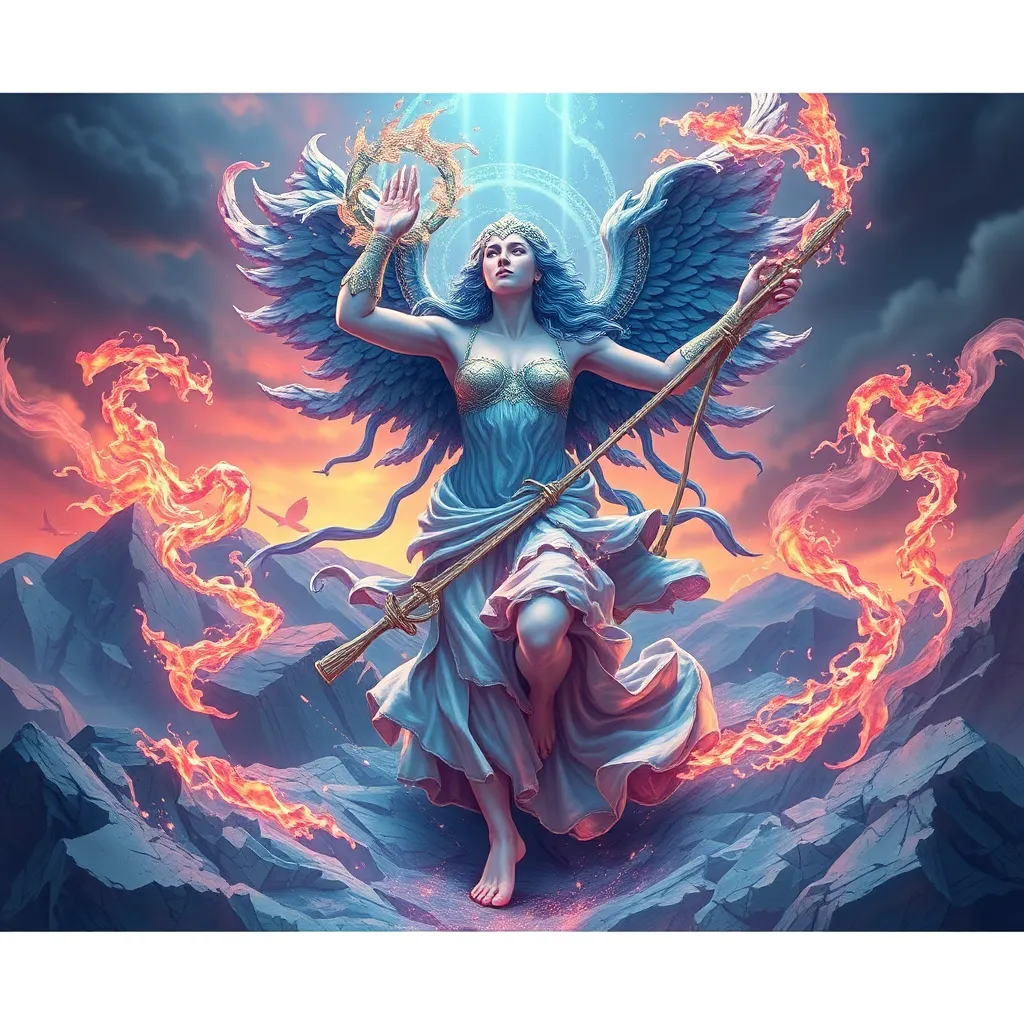The Power of Hera’s Curse: Myths of Transformation and Retribution
I. Introduction
In the vast tapestry of Greek mythology, Hera stands out as a formidable goddess, renowned for her fierce loyalty to marriage and family. As the queen of the Olympian gods, she embodies both nurturing and vengeful qualities, making her one of the most complex figures in ancient lore. Central to her mythology is the concept of curses—potent manifestations of her wrath that often lead to transformative and tragic consequences for mortals and immortals alike.
This article aims to explore the intricate myths surrounding Hera’s curses, particularly those that involve transformation and retribution. Through examining various stories, we will uncover the themes of identity, suffering, and the cyclical nature of vengeance that are intrinsic to her character.
II. Hera: The Goddess of Marriage and Family
Hera, the daughter of the Titans Cronus and Rhea, is primarily revered as the goddess of marriage and family. Her attributes include the peacock, the pomegranate, and the diadem, which symbolize her status and power among the Olympian gods. She is often depicted as a majestic figure, embodying the ideals of fidelity and social order.
Hera’s marriage to Zeus, the king of the gods, is a cornerstone of her identity. However, this union is fraught with challenges, primarily due to Zeus’s numerous infidelities. Hera’s jealousy and anger towards his lovers and offspring often lead her to take drastic actions to assert her authority and protect her dignity.
The duality of Hera’s nature is evident in her roles as both protector and avenger. While she champions the sanctity of marriage, her fierce retribution against those who threaten it serves as a reminder of her formidable power.
III. Hera’s Wrath: Causes and Consequences
Hera’s curses are typically sparked by specific events that trigger her emotions, often involving jealousy or betrayal. Some key triggers include:
- Infidelities of Zeus
- Disrespect towards her authority
- Threats to her family and offspring
Her motivations for enacting curses can be understood through the lens of her character:
- Jealousy: Hera’s deep-seated feelings of betrayal lead her to lash out against those who threaten her marriage.
- Betrayal: The repeated infidelities of Zeus fuel her desire for retribution.
- Desire for Justice: Hera often seeks to restore balance and punish those who act against her interests.
The consequences of her wrath are profound, affecting both divine and mortal realms. Her curses often lead to transformations that serve as a reminder of her power and the price of defiance.
IV. Myth of Io: Transformation and Suffering
One of the most poignant examples of Hera’s curse is the myth of Io, a mortal priestess of Hera who captured the attention of Zeus. To hide his affair from Hera, Zeus transformed Io into a cow. This transformation was not merely physical but also symbolic of Io’s loss of identity and autonomy.
The themes of identity loss and suffering are central to Io’s story. As a cow, she experiences a profound disconnection from her human identity, subjected to wandering and torment. Hera, suspicious of Zeus’s motives, sends the gadfly to torment Io, driving her into madness and further separation from her past life.
The consequences of Hera’s curse extend beyond Io’s personal suffering. Her story resonates with themes of endurance and resilience, as she ultimately seeks to reclaim her identity and finds a way to regain her humanity, albeit through tremendous suffering.
V. The Case of Agave: Madness and Retribution
Agave, the daughter of Cadmus, offers another tragic tale reflecting Hera’s influence. Driven by her own ambitions and the chaos that ensues from divine intervention, Agave falls victim to a curse that leads to her madness. This transformation culminates in a horrific event where, in a frenzied state, she kills her own son, Pentheus, believing him to be a wild animal.
Hera’s role in Agave’s madness is pivotal, as her jealousy and desire for vengeance against those who transgress divine laws create a ripple effect of destruction. The themes of familial destruction and the cyclical nature of vengeance are evident in this myth, highlighting how Hera’s retribution can lead to tragic consequences for families and communities.
VI. Other Notable Curses: A Broader Perspective
Hera’s influence extends beyond the tales of Io and Agave. Other figures, such as Tiresias and Heracles, also faced the brunt of her curses. Some notable examples include:
- Tiresias: The blind prophet who faced transformation and suffering due to his encounters with Hera.
- Heracles: The great hero, who suffered greatly because of Hera’s jealousy towards his mother, Alcmene.
Common themes in these myths include transformation, loss of identity, and the quest for redemption. The role of fate and divine intervention looms large in these narratives, demonstrating how Hera’s actions often intertwine with the larger tapestry of destiny in Greek mythology.
VII. Cultural Interpretations and Symbolism
Hera’s curses reflect societal values and fears in ancient Greece, particularly regarding marriage, fidelity, and the consequences of betrayal. These myths served as cautionary tales, warning against the dangers of infidelity and the importance of upholding social contracts.
In modern interpretations, Hera’s stories have been adapted in various forms of literature and art, often exploring themes of femininity, power, and the complexities of human relationships. The ongoing relevance of transformation and retribution in contemporary storytelling speaks to the timeless nature of these myths and their ability to convey deep human truths.
VIII. Conclusion
In summary, the myths surrounding Hera’s curses reveal profound themes of transformation and retribution. Hera’s character embodies the complexities of love, jealousy, and vengeance, illustrating the intricate dynamics of human relationships. As we reflect on her legacy, it becomes clear that the power of these myths lies in their ability to convey moral lessons and explore the depths of human experience.
Ultimately, Hera’s story is a reminder of the enduring themes of transformation and the consequences of actions, resonating through time and continuing to inspire reflection and interpretation in modern storytelling.




